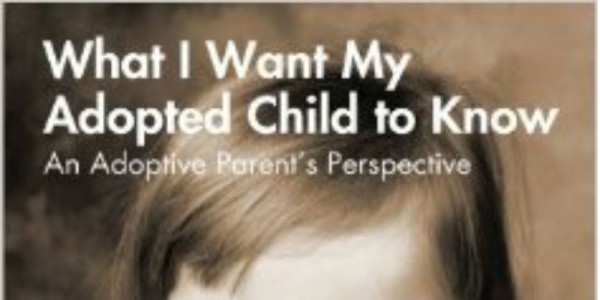“Adoptive parents don’t love their children the same way biological parents do. That’s an uncomfortable notion for a lot of people.”
From the introductory sentence, you know this book is not going to be your syrupy sweet adoption memoir. Bacchetta takes a refreshingly honest and truthful approach to explaining the feelings of many adoptive parents.
While she touches on many parts of being an adoptive parent in her book, the most notable is her perspective on the psychological ramifications of being an adoptee. Bacchetta acknowledges the loss some adoptees feel, but unlike many adoption writings, she points out how many of these perceived “adoption” issues are normal issues that many people experience. Her statement “Do not believe the ‘adoption as handicap’ propaganda” resonated loudly as I read her second chapter.
I myself, have questioned on numerous occasions if behaviors my son exhibited were related to being adopted. Bacchetta challenges the victim mentality, stating “If you let it, adoption can become an easy catch-all for anything you don’t like about yourself or your life.” Through her writing she acknowledges adoption’s life-changing impact but empowers adoptive parents and adoptees to be accountable for their own actions and take responsibility for their own lives.
Bacchetta also affirms her role as her daughter’s mother while celebrating and respecting her daughter’s birth family. While they do not have an open adoption, she clearly has respect for the decision that the birth family made and thinks of them often. She also realistically offers up the good and bad of searching for birth families. She is able to put herself in the shoes of a birth parent and adoptee and acknowledge some of the feelings that may arise with both parties while being supportive of her child’s potential need for this knowledge.
I was admittedly leery when I began reading this book. Having experienced a very open adoption myself, I was pleasantly surprised to read Bacchetta’s sensitivity toward birth parents. Some chapters, such as “Before You Search,” did not seem as though they would apply to our situation, but even in those chapters she highlights fears and concerns that those in even the most open adoptions may feel.
What I Want My Adopted Child to Know should be considered a must-read for all adoptive and prospective adoptive parents. Its insight and honesty into adoptive parent and adoptee feelings were refreshing to read in a world that seems to always want a way to make adoptees victims.
More adoption books like this can be found at AdoptionGifts.com.

